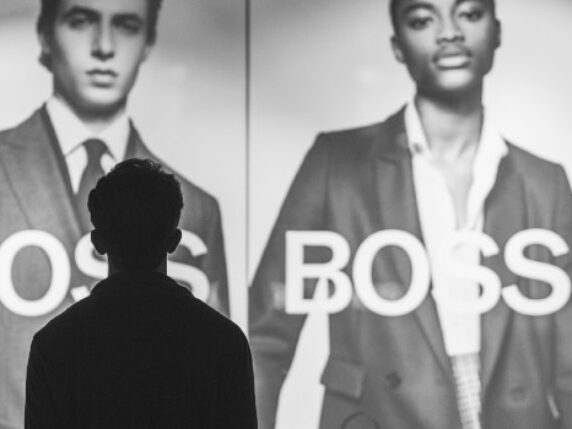HUGO BOSS was in the limelight for all the wrong reasons earlier this month when the comedian formerly known as Joe Lycett announced on Twitter that he had legally changed his name to Hugo Boss. It became apparent that the comedian had changed his name by deed poll in protest against HUGO BOSS’ defensive trade mark enforcement strategy, which he viewed as heavy-handed.
He tweeted:
‘So @HUGOBOSS (who turnover approx $2.7 billion a year) have sent cease & desist letters to a number of small businesses and charities who use the word 'BOSS' or similar, including a small brewery in Swansea costing them thousands in legal fees and rebranding. It's clear that @HUGOBOSS HATES people using their name. Unfortunately for them this week I legally changed my name by deed poll and I am now officially known as Hugo Boss. All future statements from me are not from Joe Lycett but from Hugo Boss. Enjoy.’
HUGO BOSS had sent a cease and desist letter to Boss Brewing, a small Welsh brewery, raising concerns in relation to the brewery’s use of the word ‘boss’. In a statement issued by the company, HUGO BOSS claimed they approached Boss Brewing "to avoid conflict and prevent potential misunderstanding" between the two brands.
HUGO BOSS stated that, following negotiations, the parties agreed that Boss Brewing could continue to use its name and market the majority of its products ‘without impact on their current branding’, other than in respect of two beers ‘where a slight change of the name was agreed upon.’ Boss Brewing agreed to change the name of its beer ‘Boss Boss’ to ‘Boss Bossy’ and ‘Boss Black’ to ‘Boss Brewing Black’.
The tough stance taken by HUGO BOSS was somewhat of an own goal – this incident is the perfect example of where trade mark strategy and brand strategy are not aligned, resulting in a technical trade mark success, but a brand disaster for HUGO BOSS.
Whilst its trade mark was successfully defended and a technical legal ‘win’ secured, its aggressive approach prompted the comedian’s stunt, resulting in a significant amount of negative PR for the fashion house through subsequent press coverage and social media commentary.
It is crucial that an organisation’s trade mark strategy is aligned with the overall brand strategy and that a balance is struck between defending a brand’s IP and attracting negative publicity which may ultimately damage the brand more overall.
Brand managers and in-house lawyers must work closely with their PR colleagues and senior stakeholders in order to take a holistic approach to intellectual property strategy and should seek external expert legal support where appropriate.
Careful consideration should be given as to how to manage a possible dispute - does the potential threat posed by a minor infringement warrant an aggressive response? Is there any real risk of brand confusion or potential de-valuation of the brand? Are there other ways to effectively manage low-level infringements that don’t involve an aggressive approach which could potentially reflect badly on the business?
Legal experts experienced in IP, brand management and commercial negotiations are well-placed to advise on the potential implications of an infringement and discuss the range of options available to the brand in terms of practical and effective next steps that won’t put the brand at further risk.
At Harper James, if we find out that there is a relationship or that the two parties are in the same market and likely to come across each other again, or if we feel that a formal letter is likely to provoke a defensive or even fearful reaction or just unnecessarily cause stress, we often help the brand owner draft their own letter or make their own phone call – carefully avoiding the impact of “unlawful threats” legislation – so that they can negotiate the issue in a respectful and business-like manner. Of course, where there is deliberate copying or deliberate passing off, the approach is completely different.







